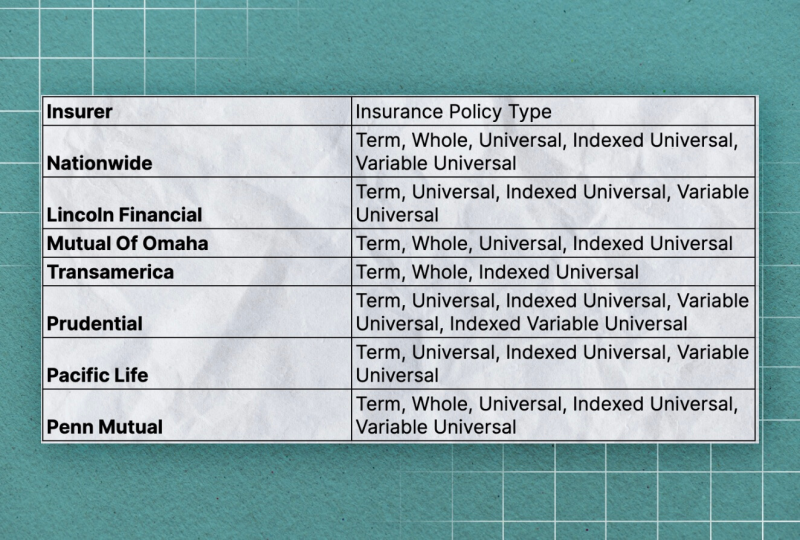All Categories
Featured
Table of Contents
1), typically in an attempt to defeat their category averages. This is a straw man debate, and one IUL folks like to make. Do they compare the IUL to something like the Vanguard Total Stock Exchange Fund Admiral Show to no load, an expense proportion (ER) of 5 basis points, a turn over proportion of 4.3%, and an extraordinary tax-efficient document of circulations? No, they contrast it to some dreadful proactively managed fund with an 8% tons, a 2% ER, an 80% turn over proportion, and a terrible record of temporary capital gain circulations.
Shared funds usually make annual taxed circulations to fund owners, even when the value of their fund has actually decreased in worth. Shared funds not only need revenue reporting (and the resulting yearly taxation) when the common fund is rising in worth, but can likewise impose revenue tax obligations in a year when the fund has gone down in worth.
You can tax-manage the fund, gathering losses and gains in order to minimize taxable distributions to the investors, but that isn't in some way going to change the reported return of the fund. The ownership of shared funds might need the common fund proprietor to pay projected taxes (indexed universal life insurance policy).

IULs are simple to position to ensure that, at the proprietor's fatality, the beneficiary is not subject to either earnings or inheritance tax. The exact same tax obligation decrease techniques do not function nearly also with mutual funds. There are various, typically costly, tax obligation traps linked with the timed trading of shared fund shares, traps that do not apply to indexed life insurance policy.
Chances aren't extremely high that you're going to undergo the AMT as a result of your mutual fund circulations if you aren't without them. The rest of this one is half-truths at finest. While it is real that there is no earnings tax obligation due to your beneficiaries when they inherit the profits of your IUL policy, it is additionally real that there is no earnings tax due to your beneficiaries when they inherit a common fund in a taxed account from you.
Ideal Universal Life
There are much better ways to prevent estate tax obligation problems than acquiring investments with low returns. Common funds may cause income taxation of Social Safety advantages.

The development within the IUL is tax-deferred and may be taken as tax totally free revenue by means of loans. The plan proprietor (vs. the shared fund supervisor) is in control of his/her reportable earnings, thus enabling them to minimize and even get rid of the tax of their Social Safety and security advantages. This is terrific.
Right here's an additional marginal issue. It holds true if you buy a mutual fund for say $10 per share prior to the distribution date, and it distributes a $0.50 distribution, you are then mosting likely to owe tax obligations (possibly 7-10 cents per share) although that you haven't yet had any type of gains.
In the end, it's truly concerning the after-tax return, not just how much you pay in tax obligations. You're likewise most likely going to have more money after paying those taxes. The record-keeping requirements for having mutual funds are substantially more intricate.
With an IUL, one's records are kept by the insurance coverage company, duplicates of annual statements are mailed to the proprietor, and distributions (if any) are completed and reported at year end. This is additionally type of silly. Naturally you should maintain your tax records in situation of an audit.
Indexed Universal Life Insurance Comparison
Rarely a reason to get life insurance coverage. Shared funds are generally component of a decedent's probated estate.
Furthermore, they are subject to the delays and costs of probate. The proceeds of the IUL plan, on the various other hand, is constantly a non-probate distribution that passes outside of probate directly to one's called beneficiaries, and is as a result not subject to one's posthumous lenders, unwanted public disclosure, or comparable hold-ups and expenses.
We covered this one under # 7, but simply to summarize, if you have a taxable shared fund account, you have to place it in a revocable count on (or also simpler, use the Transfer on Death designation) in order to stay clear of probate. Medicaid incompetency and lifetime earnings. An IUL can provide their owners with a stream of revenue for their whole lifetime, no matter how much time they live.

This is useful when organizing one's affairs, and converting possessions to income prior to an assisted living home arrest. Common funds can not be converted in a comparable manner, and are usually thought about countable Medicaid properties. This is one more silly one supporting that inadequate people (you know, the ones that require Medicaid, a government program for the bad, to pay for their retirement home) ought to use IUL instead of common funds.
No Lapse Universal Life Insurance Policy
And life insurance looks horrible when compared relatively versus a pension. Second, individuals that have money to buy IUL above and past their pension are going to need to be dreadful at managing cash in order to ever before get approved for Medicaid to spend for their retirement home expenses.
Persistent and incurable health problem cyclist. All plans will certainly enable a proprietor's simple accessibility to money from their policy, typically forgoing any abandonment charges when such individuals endure a serious ailment, need at-home treatment, or come to be confined to an assisted living home. Mutual funds do not provide a comparable waiver when contingent deferred sales costs still put on a common fund account whose owner requires to offer some shares to money the prices of such a remain.
Best Iul Insurance Companies
You obtain to pay even more for that advantage (cyclist) with an insurance plan. Indexed universal life insurance policy gives death benefits to the beneficiaries of the IUL owners, and neither the owner neither the beneficiary can ever before lose cash due to a down market.
I absolutely do not require one after I reach economic self-reliance. Do I desire one? On standard, a buyer of life insurance coverage pays for the real price of the life insurance benefit, plus the prices of the policy, plus the earnings of the insurance coverage company.
Best Iul Provider
I'm not completely sure why Mr. Morais included the entire "you can not shed cash" once again below as it was covered rather well in # 1. He simply desired to duplicate the most effective selling point for these points I expect. Again, you do not lose nominal dollars, but you can shed real dollars, as well as face significant chance expense as a result of reduced returns.

An indexed universal life insurance coverage plan proprietor might exchange their plan for a totally various plan without triggering earnings taxes. A shared fund owner can not move funds from one common fund firm to one more without selling his shares at the former (hence triggering a taxable occasion), and buying brand-new shares at the latter, typically based on sales costs at both.
While it holds true that you can exchange one insurance plan for another, the factor that people do this is that the very first one is such a horrible plan that even after getting a new one and experiencing the early, adverse return years, you'll still appear ahead. If they were marketed the ideal plan the initial time, they should not have any need to ever before trade it and experience the early, negative return years once again.
Latest Posts
Best Indexed Universal Life Insurance Policies
Group Universal Life Insurance
Variable Universal Life Insurance Quotes